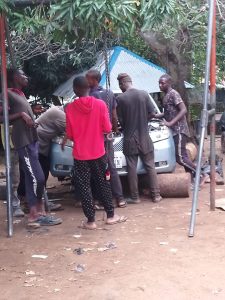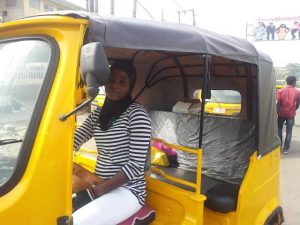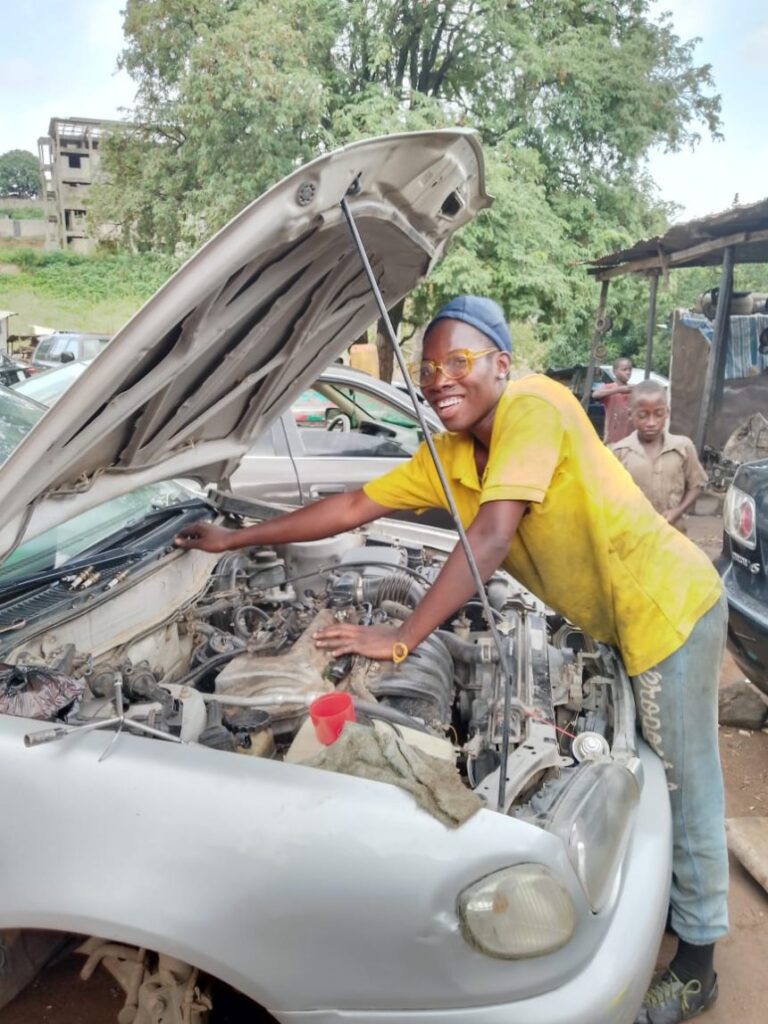The issue of discrimination or marginalisation of women in the work environment in Nigeria or elsewhere in the world, has continued to enjoy the prime of place in the arena of human discourse.
Scholars, civil society activists, human rights advocates, the media as well as national and multilateral personalities and authorities from antiqued to digital age, have continued to debate the issue of gender parity, in all sectors of human life.

Even the religious sector that tends to fashion its legal instruments and enforceable traditional taboos in accordance with the laws immutable in nature, which scholars like St. Thomas of Aquinas, Augustine of Hippo, St. Jerome, Plato, and Thomas Hobbes, referred to as Natural Laws.
Stories about noble contributions of Queen Elizabeth II of England and Queen Amina of Zaria, in the annals of human history, strengthen the classical aphorism, “what a man can do, a woman can do, even better”.
Perhaps it was on the premise of the aforesaid aphorism, that the United States Government, explicitly outlawed, under Title VII of the Civil Rights Act of 1964, prohibited employment discrimination on account of race, colour, religion, sex, and national origin.
However, notwithstanding the deliberate efforts of nations to provide common grounds for equality in the labour space for every gender, it is evident that marginalisation of women in the labour force still persist in many states of Nigeria including the Federal Capital Territory (FCT) Abuja.
This phenomenon has hindered women’s economic empowerment and survival resulting in inequalities, limited opportunities, and challenges in trade activities. Existing data consistently show a significant gap between men and women in terms of employment opportunities and income-generating activities.
For instance, a report by the National Bureau of Statistics (NBS) released in December 2018 showed that women form 49% of Nigeria’s population and yet the NBS report showed a 6.3% gap between the rate of unemployment between women and men. The imbalance in the employment rate along the gender line may mean that more women may be relying on others for survival.

The same NBS report indicates that the figure for women represents a 5.4 percentage point increase in the unemployment rate from the same period of the preceding year. Additionally, 25.9% of women in the labour force were underemployed, a 4.1 percentage point increase in underemployment for women from the previous year.
More recently, in 2020, the same NBS Quarter Four, or Q4 report stated that female unemployment was highest among the genders with 35.2% while male was 31.8% during the reference period. A similar case was recorded for underemployment, 24.2% was reported for females, while males reported an underemployment rate of 21.8%.
In Nigeria, with particular reference to the Federal Capital Territory (FCT), Abuja, the marginalisation of women in the labour market is still very prevalent. This phenomenon, expert said, has hindered women’s economic empowerment and survival, resulting in inequalities, limited opportunities, and challenges in trade activities.
Timesreporters Online’s investigation in parts of Abuja shows that due to massive inequalities faced by women, some industries are now seen as the exclusive preserve for men. Further findings revealed that very few women are playing significant role in the transportation sub sector of the nation’s economy.
In the FCT, female accounts for less than one percent of commercial drivers, such as Okada, Keke Napep (tricycle), Taxi, Bus or Trailer drivers.
It is also pertinent to note that participation of women in areas, like auto repairs, both mechanical and electrical is abysmally low, making it look like women are barred from eking out a living in these sectors.

Timesreporters’ visits to major mechanic villages in Abuja, including Apo, Kugbo, and Dei Dei, all in Abuja Municipal Area Council, and Zuba mechanics in Gwagwalada Local Government Area of the FCT, reveal that women are significantly underrepresented in the auto-repair industry, with women constituting fewer than two percent.
According to 2019 report of the National Institute for Automotive Service Excellence (ASE), a nonprofit organisation that promotes excellence in vehicle repairs, service and parts distribution, women constituted only 9.9% of the automotive repair, in the industry across the nation.
Corroborating this trend, Finba Asogwa, an auto mechanic at Apo Mechanic Village, said that the dearth of women in the mechanic shops across the country did not start today. He attributed the phenomenon to several reasons including the unclean nature of the job and physical strength required for it among other things.
“For years, auto mechanics have been overwhelmingly male. Both men and women who have considered employment in the field have noted that the work was physically tasking, involving frequent heavy lifting and often requiring brute strength. It is dirty work too. And you know, that our women would do anything to avoid appearing dirty,” he said.
Asogwa added that there is no known law banning women from taking a job as an auto mechanic engineer, stressing that the only hindrance may be the physical strength required to function effectively on the job.
However, in spite of the obvious dominance of men in the auto mechanic profession making it look as if it is all men affair, some women has embraced the mechanic job.
Miss Goodness Asiegbu, stands out as one who is doing the job at the Kugbo mechanic village of the Abuja Municipal Area Council (AMAC).
Interestingly, Asiegbu does not see anything unusual in her chosen profession saying she does not find anything difficult doing the job on a daily basis.
“I specialise in Japanese automobiles such as Toyota, Nissan, Honda, Suzuki and the likes. I do not do Mercedes, Peugeot or Kia by choice. I have been doing this job in this place since five years ago. Nothing is easy, but if you put your mind to it of course, you will succeed” she said.
She emphasised that she had never experienced any form of discrimination on the basis of her gender, unless the occasional surprises that customers display when they encounter her for the first time.
Pointing out some of the prohibitive classes in the nation’s legal instruments on work environment in Nigeria, a Labour expert, Jonathan Mukwuzi said: “Women are not allowed to work in the same industries or perform the same tasks at work as men. For example, it is illegal for women to work overnight in manual labour, and they are prevented from engaging in any underground work in any mine”.
Mukwuzi pointed out it is also regrettable that victims of sexual harassment at work places do not have a guaranteed and easy access to civil remedies.
Findings have revealed that there is a strong relationship between a non-discrimination clause in employment and the number of women in the workforce, relative to men.
An industry player, Ms. Grace Adewale, told Timesreporters Online, that women are not encouraged, traditional wise, to embrace the driving profession.
As a Keke Driver, passengers often make discouraging comments like, why would a woman be driving Keke?
She queried, “What is wrong about a woman making a living from Keke driving? Or even taxi, trailer or Okada? Women are doing extremely well in air and sea transportation as pilots and captains, but when it comes to driving, we are discriminated upon. Driving is largely seen as a male job by the society. We need to begin to have a rethink about these long held opinions with the view to breaking away from it. Women should wake up and compete with men. The era of male dominance is far gone. I don’t depend on my husband for anything, every day I come out, I make enough money to pay my bills without depending on him”.
Ms. Chioma Okoafor, a taxi driver, at Zuba, under Gwagwalada Area Council of FCT, said that there is nothing masculine in driving. She noted that she had been on the road for over three years and she is not even contemplating of quitting the job.
“Majority of my passengers think that I should not do what I am doing. They feel driving for commercial purposes should be an exclusive preserve of men. But that, to me, is cultural stereotype, and I refuse to fall for it. Women should be encouraged to go into transportation business. I don’t mean buying cars and giving to male drivers but being at the centre stage of driving,” she said.
An auto electrician, Mr. Joseph Aganga, said that he had not met any female auto electrician in his life.
Women, he said, prefer to fix nails, sow clothes, plait hair or work in big men homes as nanny or even sales girls instead of straining selves to acquire skills such as auto electrician.
“Women are wired differently, they do not like to suffer. They prefer easy things. Just look around this garage, how many women do you see here apart from these one’s that are selling food and groundnuts. Even you as a father would prefer to send your girl child to learn how to sow clothes or make hair or fix nails instead of auto mechanics or electrical. So, in the final analysis, it is a cultural issue”.
The National Secretary, National Union of Road Transport Workers, Comrade Anthony Asogwa Chukwudi, while providing further insights into the discourse, said there is no law preventing women from commercial driving.
Comrade Chukwudi said the NURTW has women members of the union even though they are not in large number.
According to him, the NURTW has women wing across all states of the federation, stressing that there is no law stopping women from commercial driving.
The National Secretary suggested that women are few in the trade because of the strenuous, and time consuming nature of commercial driving job.
“Africans believe driving particularly commerce driving is for men. Though, we have few women, mostly in the South West, North, even in Enugu we have female taxi drivers, but like I said earlier on, they are in few numbers.
Nevertheless, even at the headquarters, we have department for women affairs. There is no law banning women from commercial driving. We are doing our best to sensitise the women folks on the existing opportunities in commercial driving, some of them are keying into it. But like I said, they are not in large numbers because for instance a married woman may find it difficult to engage in such job, because it is strenuous so to say, and it is also time consuming as well. And the young ladies, many of them prefer to either engage in fashion designing, doing of hair and less tedious trade like that, nevertheless we are doing our best, we have even trailer drivers” he said.
There is no gainsaying the fact that women have faced gender bias in the transportation and automobile technician sectors, which is one of the biggest barriers to having women enter the industry as technicians or other players to eke out a living.
Experts advocate that while that emphasis should be on sensitisation to ensure that women are aware that they can effectively play in these fields, Nigeria’s labour laws should also be changed to protect women from gender discrimination in employment, to guarantee equal pay for equal work, and provide civil remedies for sexual harassment.
Women’s transition into productive work is still slow in Nigeria, and they have less access to both schools and jobs.
This investigation is for the GENDER, THE AGENDA project of Gender Strategy Advancement International (GSAI) supported by the Wole Soyinka Center for Investigative Journalism (WSCIJ), and the MacArthur Foundation.



